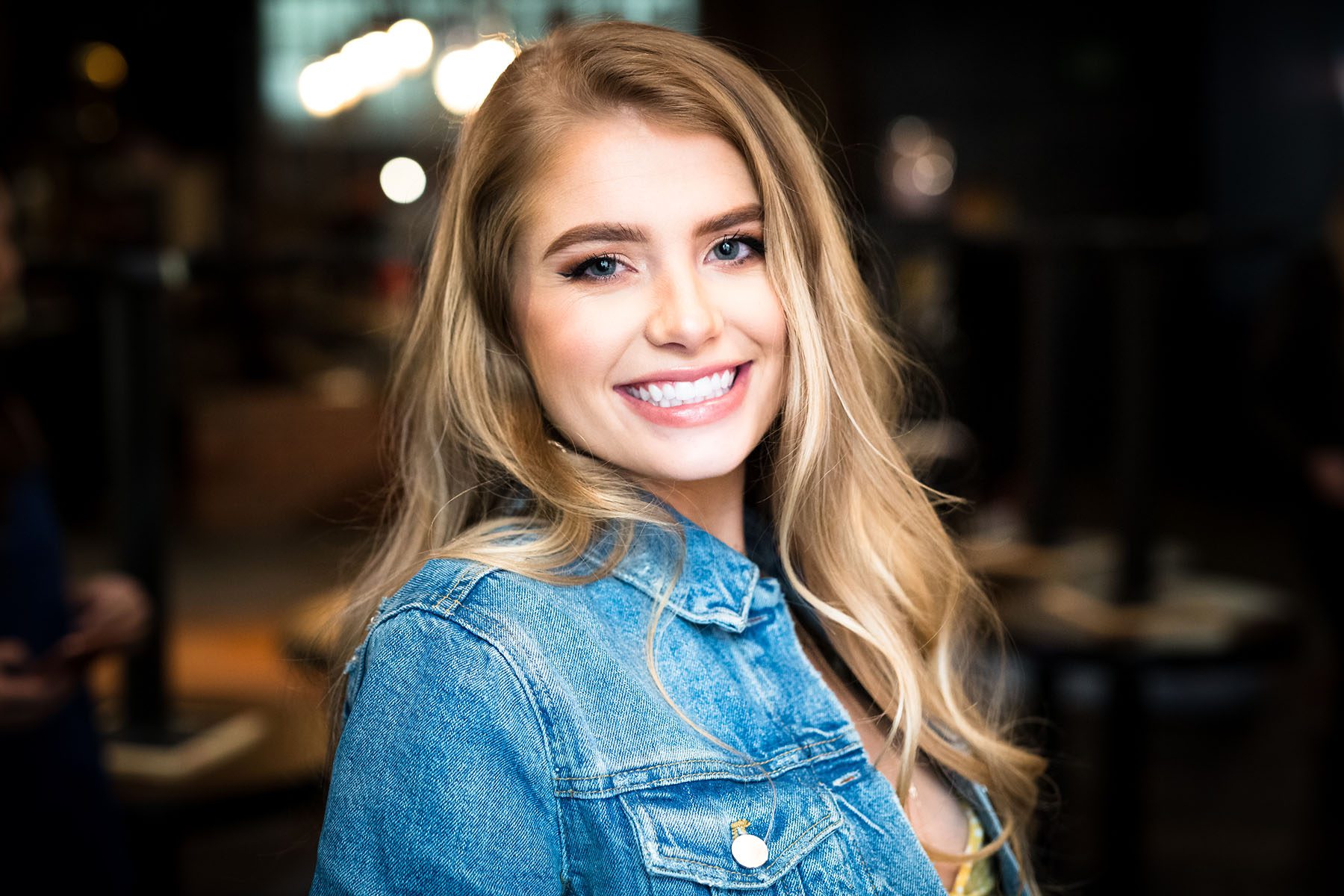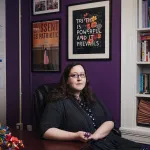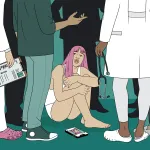“The Bachelor” alum and fan favorite Demi Burnett announced via her Instagram account last week that she is autistic. “There is a huge stigma when it comes to autism,” Burnett, 27, wrote on Instagram. “I encourage you to be open minded and accepting.”
Autism has major diagnostic disparities when it comes to gender. Women are typically diagnosed much later than men. Boys are four times more likely to be diagnosed with autism than girls. While some researchers believe this disparity may be a result of biological differences, others point to bias in testing and ways that autistic women might present their disability differently.
Haley Moss is an advocate, author and one of the first openly autistic people to pass the Florida Bar. Moss has written about autism and gender for a variety of outlets, including The Washington Post and Teen Vogue. She is also, less famously, a huge fan of “The Bachelor.” The 19th talked to Moss about how autism can be different for women, how “The Bachelor” has represented disability over the course of its history, and what Burnett’s disclosure means, both for her personally and for popular culture.
This interview has been edited for length and clarity.
Sara Luterman: On average, autistic women get diagnosed years later than autistic men. Can you tell me a little bit about that?
Haley Moss: Girls and women often do get diagnosed later, or cycle through misdiagnoses beforehand. Some get diagnosed after their children get diagnosed, after a, “Wait, all kids don’t do that?” lightbulb moment.
A lot of us also mask or camouflage autistic traits. The diagnostic criteria for autism is often written with boys in mind. We don’t often meet the stereotype of autism and based on how the criteria is written. The existing criteria doesn’t account for different presentations of autism, gender differences or even the experiences of adults. I wasn’t an 8-year-old boy who was obsessed with trains; I was a quiet kid who was very sensitive, didn’t have a lot of friends and kept to myself, and would draw, paint, read and play video games — and I did well in school.
Is there a personal experience you want to share about diagnostic disparities in autism for women?
I feel incredibly lucky to have been diagnosed when I was a 3-year-old, and I realize it’s primarily because I was, at the time, non-speaking. Being a delayed talker inherently helps your autism to be identified early on since it’s more apparent to all sorts of folks. If I had been an early talker or more extroverted, I do wonder how my autistic journey would’ve turned out. Maybe it would’ve been identified because of the other things besides communication that I struggled with, or maybe, like so many others, it may have been missed because I was an introverted high academic achiever. So many social, behavioral, and emotional cues and differences are overlooked or brushed aside if kids don’t get in trouble and get good grades.
One of the biggest theories about autism is still extreme male brain theory: The idea that autistic people are more about things like systems and logic — things stereotypically associated with men — than we are about things like empathy. Biological explanations have included structural similarities in the brains of autistic women and men, as well as exposure to extra testosterone in the womb. How have these ideas impacted you?
I’ll never forget the people who have told me there’s no way I could ever be autistic because “you’re a girl.” I always found it disheartening and misinformed. I don’t think it’s impacted me much, but I had read about the extreme male brain theory as a teenager once and wondered if something was really that strange. I grew up in a house that never viewed me as weird, less or anything negative. My parents convinced me I was cool and others just didn’t understand that.
I can’t speak for others, but it wouldn’t surprise me if these ideas also impact the self-esteem of autistic women or more vulnerable young people earlier in developing their individual autistic identity.
What do you like about “The Bachelor”? Is there anything especially autistic about it, to you?
“The Bachelor” is such an escape from reality. I think what draws me to it, other than predictably watching it on Monday nights, is how universally everybody wants love. The destinations in the non-quarantine seasons are also super interesting, and a lot of the contestants are around my age, so it also gives me a window into my peers and what they’re hoping or expecting within their futures.
How did Demi coming out as autistic make you feel, as a fan of the show? As an autistic woman?
Disability has never really been “The Bachelor”’s strong suit. Prior to the current season and Demi’s announcement, I can only recall two disabled castmates: Sarah Herron, who has one arm, and Abigail Heringer, who has a cochlear implant. Sarah was a first one-on-one date recipient, and Abigail received a first impression rose, almost cementing them as early fan favorites and the exceptionalism of disability within “The Bachelor.” The show is not nearly as diverse as it should be, and disability is one of the places where it often falls short. The disabled castmates get objectified in a way that makes me feel uncomfortable since they’re not being fleshed out as humans the way the other contestants are. Disabled contestants deserve so much better.
I do feel like Demi [coming out as autistic] has helped me understand her better. The online persona, the bold, outlandish things she said. Realizing this was another autistic person, it became pretty apparent to me she was playing the role that either the show wanted her to play or that she herself wanted to play to garner more social acceptance.
Another common explanation for the diagnostic disparity between autistic men and women is masking, sometimes also called “camouflaging,” which you’ve mentioned. What is masking? Does it feel like a relevant concept here? And if so, why?
Autistic and neurodivergent masking speaks to this idea that we adapt personas and behaviors to appear more socially acceptable, to act neurotypical. (Note: “Neurotypical” is a word that is often used within the autism community to refer to non-autistic people.) It might be different behaviors in order to gain social acceptance and avoid adverse consequences like bullying, assault or even suspicion from law enforcement. We might purposely change our body language, eye contact, script social interactions. It’s exhausting, leads to burnout, misdiagnosis, and a whole host of self-esteem and self-identity issues, since you don’t feel like you’re being you, but you aren’t necessarily being fake.
I like to tell a story about being a high school freshman. At the time, every teenage girl I knew was wild about the “Twilight” saga. I did not care whatsoever about vampires, but I surely knew everything there was to know about the series and movies in order to seemingly fit in or at least attempt to make friends. I was changing or inventing pieces of myself in order to be liked, and didn’t want to be “figured out” – a lot like being a secret agent of sorts. I wasn’t obviously, visibly bullied because of how I would talk, what I would talk about and how I presented myself. I still often got excluded anyway.
A lot of people mistakenly view masking as a “girls and women” problem, but autistic masking impacts all of us, especially people who are marginalized by our gender. The motivation is just different for women than other high-camouflaging autistic people. Clinicians aren’t always looking for and identifying masking and camouflaging behaviors early on, which also impacts that disparity. It’s seen often as the other way around like, “those autistic women are just so good at masking behavior we don’t identify them” rather than clinicians recognizing this is happening, and the autistic diagnostic criteria needs to better reflect the autistic experience.
I think this is super relevant because Demi is a late-diagnosed woman. To me, it makes perfect sense that this sociable, confident person was really trying to gain social acceptance. She’s even said that’s a persona she created for people to be more comfortable around.
Some people are going to be like “Well, she doesn’t look autistic. She’s very socially adept. She was able to be on ‘The Bachelor’!” That kind of thing.
“You don’t look autistic” is one of the biggest microaggressions I’ve heard throughout my life. It erases my entire experience and the behind-the-scenes efforts I do to put non-autistic, neurotypical people at ease or to be granted conditional social acceptance. There’s no one look to autism. It can look exactly like me or a successful reality star like Demi Burnett.
If you could tell Demi anything about embracing her identity as an autistic woman, what would you say?
Nothing is wrong with you. You are not a failed version of normal. You are your autistic self, and I hope you come to accept all of that about you. I hope you continue to learn more about yourself and the autistic community. I do not want to speak for more than myself, but I believe you will find there is a group of people who will welcome and accept you as you are in your journey. As a “Bachelor” alum, you also have such a huge platform. With that comes responsibility and power that I hope you use for good and amplify other autistics if you can. I am grateful for you sharing this step of your journey and educating those who possibly haven’t had experience with autism to maybe challenge their assumptions a little deeper, too. So, thank you, and I hope you feel comfortable being your full, authentic self.







